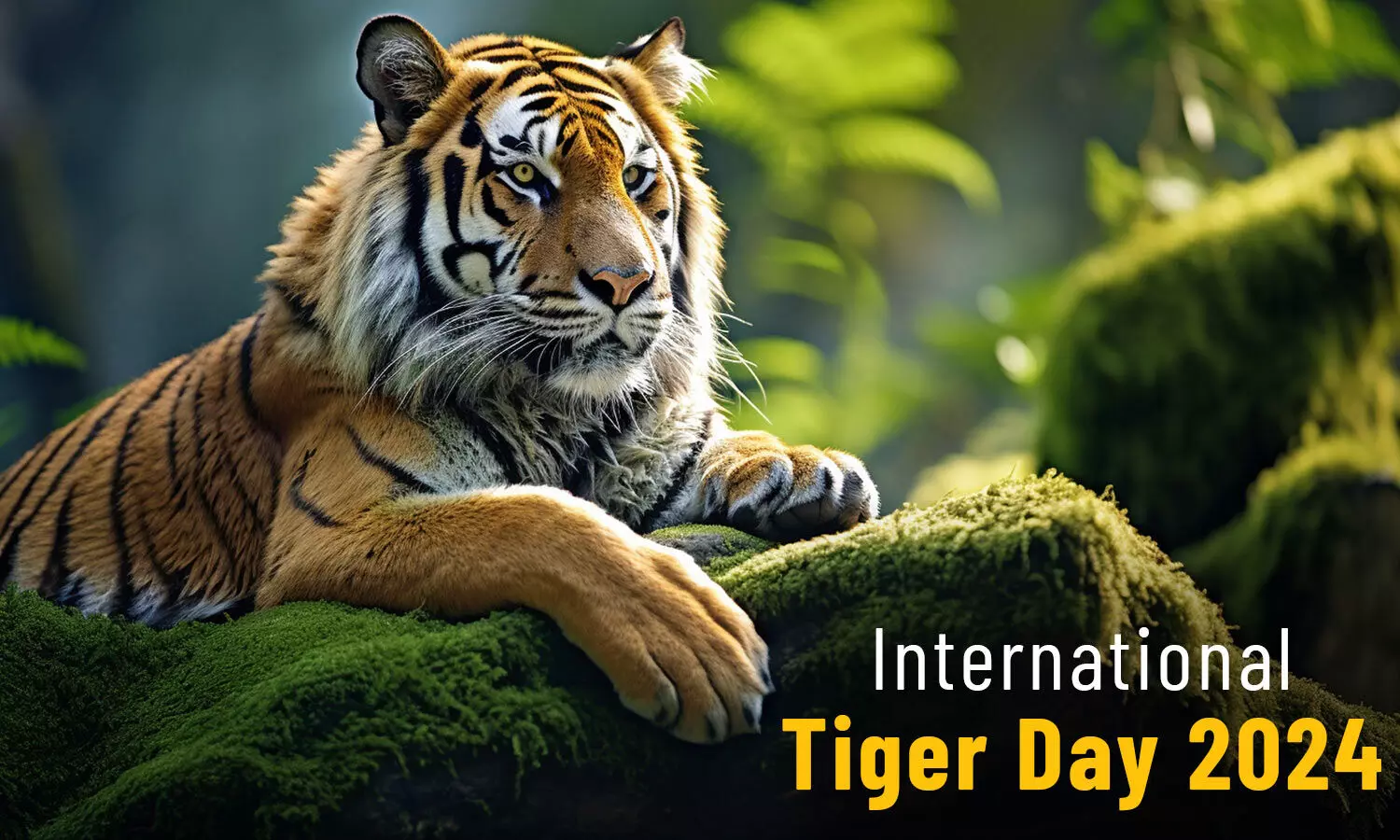International Tiger Day 2024: Celebrating Conservation Efforts

Explore the history, challenges, successes, and global efforts in tiger conservation on International Tiger Day 2024.
International Tiger Day, observed annually on July 29, stands as a global call to action for the conservation of one of Earth's most iconic and endangered species: the tiger. This day serves not only to celebrate the majesty and cultural significance of tigers but also to raise awareness about the critical threats they face in the wild.
From habitat loss and poaching to human-wildlife conflict, tigers confront myriad challenges that jeopardise their survival. Through concerted international efforts and local conservation initiatives, there have been notable successes in safeguarding tiger populations, yet much remains to be done.
As we commemorate International Tiger Day 2024, it is crucial to reflect on the progress made, acknowledge the ongoing conservation challenges, and renew our commitment to ensuring a future where tigers continue to roam free in their natural habitats.
Read on to learn about the history, significance, current challenges, conservation successes, global collaborations, and future prospects for tiger conservation.
History and Significance of International Tiger Day
Established in 2010 during the Saint Petersburg Tiger Summit, International Tiger Day emerged as a global initiative to address the declining tiger populations across their habitats. Tiger Range Countries, including nations like India, Russia, and others with wild tiger populations, recognised the need for coordinated conservation efforts. The summit highlighted the alarming decline in tiger numbers due to factors such as habitat loss, poaching, and human-wildlife conflict. As a result, July 29 was designated as a day to raise awareness about tiger conservation challenges and opportunities worldwide.
Why Tigers Matter
Tigers are not just majestic creatures but also crucial to ecological balance. As apex predators, they regulate prey populations and maintain the health of ecosystems. Their distinctive presence in forests and grasslands symbolises strength, elegance, and beauty, making them iconic in various cultures and mythologies around the globe. Tigers inspire awe and admiration, yet their numbers continue to dwindle due to relentless human activity.
Current Challenges Facing Tigers
Despite decades of conservation efforts, tigers face severe threats that endanger their existence. Habitat loss remains a primary concern as human populations expand into wild areas, fragmenting tiger habitats and reducing their prey base. Illegal wildlife trafficking persists, driven by demand for tiger parts in traditional medicine and as status symbols. Poaching, driven by the lucrative trade in tiger skins and bones, further threatens their survival.
Conservation Success Stories and Challenges in India
India, with its rich biodiversity, plays a critical role in global tiger conservation. The country launched Project Tiger in 1973, aiming to protect and increase tiger populations by creating tiger reserves and implementing stringent anti-poaching measures. This initiative has been a remarkable success, with tiger numbers rising from a low of 268 in 1973 to 3,167 in the latest census of 2022. These efforts highlight India's commitment to tiger conservation, supported by robust legal frameworks and community engagement.
However, conservation success is not without challenges. Rapid industrialization, infrastructure development, and agricultural expansion threaten tiger habitats and disrupt wildlife corridors essential for their movement. Human-wildlife conflict escalates as tigers encounter human settlements, leading to incidents that endanger both human lives and tiger populations.
Global Efforts and Collaborations
Tiger conservation requires global cooperation and collaborative efforts. International organisations such as the Global Tiger Forum and the World Wildlife Fund work alongside governments and local communities to protect tiger habitats, combat poaching, and raise awareness about tiger conservation issues. Initiatives like the Global Tiger Recovery Program aim to double tiger populations by 2022 and provide a framework for sustainable tiger conservation efforts worldwide.
The Future of Tiger Conservation
Looking ahead, the future of tiger conservation hinges on proactive measures and collective action. Strengthening law enforcement against wildlife crime, expanding protected areas, and promoting sustainable livelihoods for local communities are essential steps. Educating the public about the importance of tigers and their habitats fosters a sense of stewardship and encourages support for conservation initiatives.
Innovative approaches, such as technology-driven monitoring and community-based conservation programs offer promising solutions. Advances in satellite tracking, camera traps, and genetic analysis enhance our understanding of tiger behaviour and habitat use, guiding conservation strategies effectively.
International Tiger Day serves as a reminder of our shared responsibility to protect and preserve tigers for future generations. By raising awareness, advocating for stronger policies, and engaging communities in conservation efforts, we can ensure that these magnificent creatures continue to thrive in the wild. Together, we can safeguard tigers and their habitats, securing a brighter future for both wildlife and humanity.
Tiger conservation is not just about saving a species but also preserving ecosystems that benefit all life on Earth. As we celebrate International Tiger Day, let us renew our commitment to protecting these majestic big cats and their habitats, ensuring they remain a symbol of strength and resilience in our natural world.











